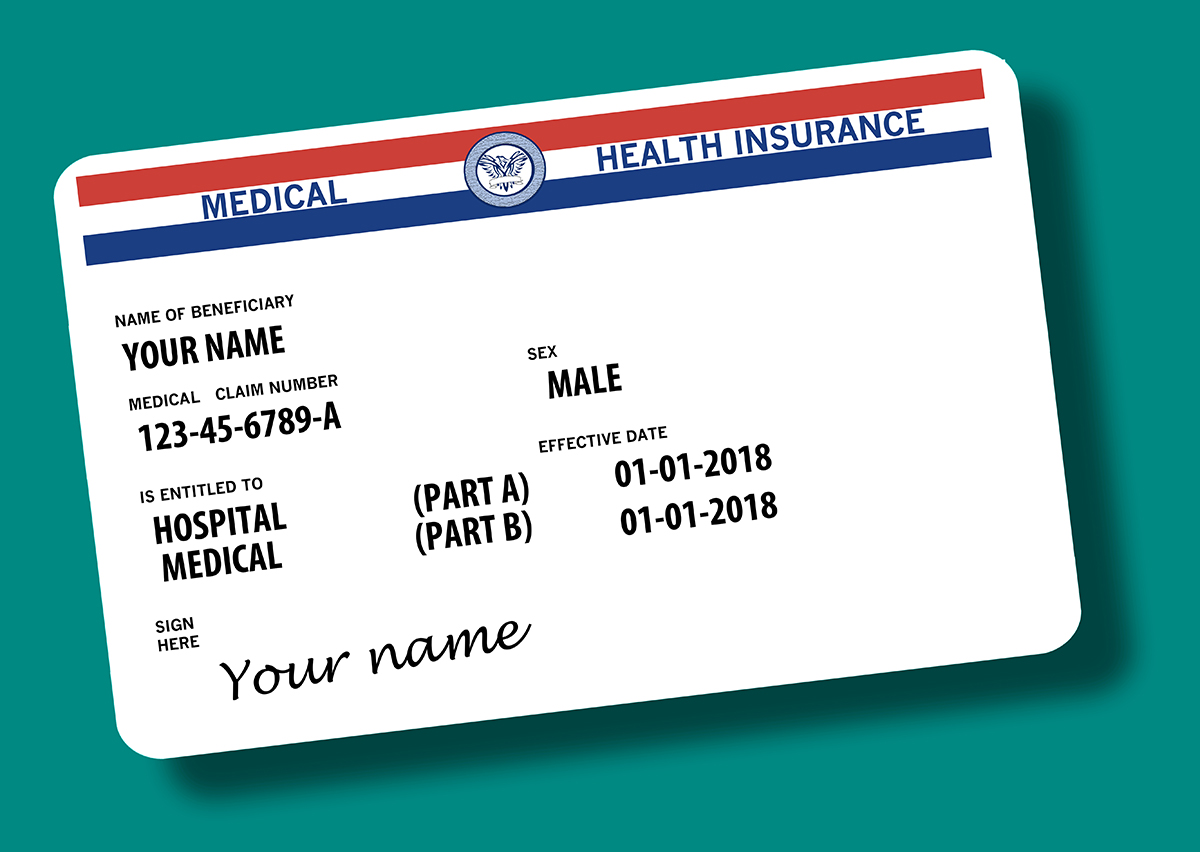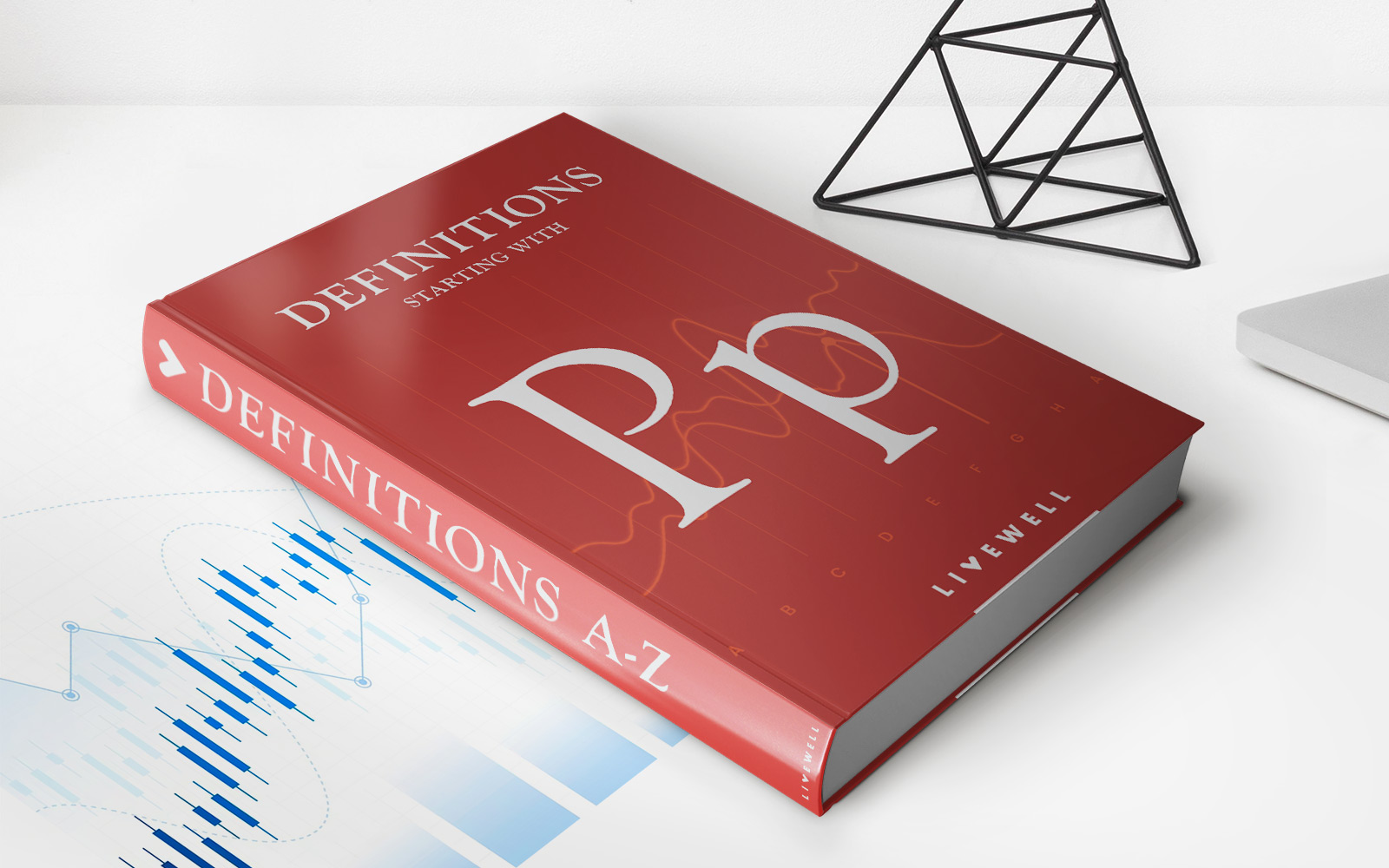Home>Finance>What Is The Effective Date Of An Insurance Policy


Finance
What Is The Effective Date Of An Insurance Policy
Published: November 23, 2023
Find out the effective date of an insurance policy and how it impacts your finances. Get the information you need to manage your insurance coverage.
(Many of the links in this article redirect to a specific reviewed product. Your purchase of these products through affiliate links helps to generate commission for LiveWell, at no extra cost. Learn more)
Table of Contents
- Introduction
- Definition of Effective Date
- Importance of Effective Date in Insurance Policies
- Factors Affecting Effective Date
- Different Types of Effective Dates in Insurance Policies
- Common Examples of Effective Dates in Insurance Policies
- Understanding the Importance of Accurate Effective Dates
- Conclusion
Introduction
In the world of insurance, effective dates play a crucial role in determining when coverage begins and when policy terms take effect. Whether you’re purchasing auto insurance, health insurance, or any other type of coverage, understanding the effective date is essential for ensuring you have the protection you need when you need it.
The effective date of an insurance policy refers to the date on which the policy becomes active and coverage begins. It is the point in time when the insurance company assumes the risk and starts providing the agreed-upon benefits or compensation in the event of a covered loss or claim.
The effective date is a critical aspect of an insurance policy as it establishes the start of the contractual relationship between the insured and the insurer. It also sets the timeline for when the policyholder is responsible for making premium payments and when coverage is in force.
The concept of the effective date may sound straightforward, but it can be influenced by various factors and can vary depending on the type of insurance policy being purchased. Understanding these factors and types of effective dates is essential to ensure you have a clear grasp of your policy’s terms and protections.
In this article, we will explore the importance of effective dates in insurance policies, discuss the factors that can affect them, examine the different types of effective dates, and provide some common examples to help illustrate their significance. By the end, you will have the knowledge needed to comprehend the significance of accurate effective dates and how they impact your insurance coverage.
Definition of Effective Date
The effective date of an insurance policy is the specific date on which the policy coverage begins and the terms of the policy become active. It marks the starting point of the contractual relationship between the insured and the insurance company.
When purchasing an insurance policy, it is crucial to understand the effective date as it determines when you are eligible to receive coverage and when the insurance company assumes the risk associated with providing that coverage.
The effective date is typically mentioned in the insurance policy documents, and it is important to review these documents carefully to ensure you are aware of when your coverage starts. It is common for the effective date to be different from the date the policyholder submits their application or makes the first premium payment.
To illustrate, let’s consider an example. Suppose you are purchasing auto insurance and submit your application on June 15th, but your policy’s effective date is set for July 1st. In this case, any incidents or accidents that occur between June 15th and July 1st may not be covered by your policy.
It is crucial to understand that the effective date is not the same as the purchase date or the date of payment. Insurance companies often have specific guidelines on when coverage takes effect based on their internal processes and underwriting procedures.
Insurance policies may also have provisions for retroactive effective dates. A retroactive effective date is a date earlier than the policy’s issuance or application date. It may be used to provide coverage for a specific event or claim that occurred before the policy’s inception date, as long as certain conditions are met.
Therefore, it is essential to pay attention to the effective date mentioned in your policy documents and understand how it impacts your coverage. If there are any discrepancies or questions regarding the effective date, it is important to contact your insurance agent or the insurance company directly for clarification.
Importance of Effective Date in Insurance Policies
The effective date in insurance policies holds significant importance as it determines when coverage begins and when policy terms take effect. The following are some reasons why understanding the effective date is crucial:
1. Initiation of Coverage: The effective date marks the official start of coverage under the insurance policy. It is the point at which the insurance company assumes the responsibility of providing the agreed-upon benefits or compensation in the event of a covered loss or claim.
2. Protection against Unforeseen Events: The effective date ensures that you have coverage in place to protect yourself and your assets against any unforeseen events or incidents. Whether it’s a car accident, a medical emergency, or damage to your property, having an accurate and timely effective date ensures that you are financially protected.
3. Compliance with Legal Requirements: In some cases, having an active insurance policy with a valid effective date is a legal requirement. For example, most states mandate that drivers have auto insurance with a specific effective date to lawfully operate their vehicles.
4. Policyholder Responsibilities: The effective date also establishes the timeline for the policyholder’s responsibilities, such as making premium payments. It determines when coverage is in force and when the policyholder is required to fulfill their obligations under the policy terms.
5. Renewal and Cancellation: Understanding the effective date is crucial during policy renewal or cancellation. By knowing the effective date, you can make informed decisions on renewing your policy or seeking alternative coverage options.
6. Claims Processing: When a claim is filed, the insurance company will assess whether the incident or loss occurred within the effective date of the policy. If the incident falls outside the effective date, the claim may be denied or not covered.
7. Changes in Coverage: If you need to make changes to your insurance coverage, such as adding or removing coverage options, the effective date will determine when those changes take effect.
Understanding the importance of the effective date in insurance policies ensures that you have the appropriate coverage when you need it the most. It is crucial to review your policy documents carefully, clarify any doubts with your insurance provider, and ensure that the effective date aligns with your insurance needs and obligations.
Factors Affecting Effective Date
Several factors can influence the effective date of an insurance policy. It is important to understand these factors to ensure that your coverage begins when you expect it to. The following are some common factors that can affect the effective date:
1. Application Date: In some cases, the effective date of the policy may be based on the date the insurance application is submitted. This is common in situations where coverage starts immediately upon application approval.
2. Premium Payment Date: The date on which the premium payment is received by the insurance company can impact the effective date. If the premium is not paid by the specified due date, the policy may not become effective until the payment is received.
3. Underwriting Process: The effective date may be influenced by the time it takes for the insurance company to underwrite and approve the application. If the underwriting process is lengthy, the effective date may be delayed.
4. Waiting Periods: Certain types of insurance policies, such as health insurance, may have waiting periods before coverage becomes effective. These waiting periods are designed to prevent individuals from purchasing insurance only when they need immediate medical attention.
5. Policy Specifics: The terms and conditions of the insurance policy itself may dictate the effective date. For example, a policy may state that coverage begins on the effective date but only for specific named perils or situations.
6. Additional Documentation: Some insurance policies require additional documentation or proof before the coverage becomes effective. This can include documents such as proof of identity, property appraisals, or medical records.
7. Retroactive Effective Dates: In certain cases, a retroactive effective date may be applied to the policy. This means that coverage starts from a date earlier than the policy’s issuance. Retroactive effective dates are typically used when there is a specific event or claim that occurred before the policy’s inception but is still eligible for coverage.
It is important to carefully review your insurance policy documents and discuss any concerns or questions about the effective date with your insurance provider. Additionally, be aware that the factors influencing the effective date can vary depending on the type of insurance policy and the specific terms and conditions outlined in the policy contract.
Different Types of Effective Dates in Insurance Policies
Insurance policies can have different types of effective dates based on the specific circumstances and requirements of the coverage. Understanding these different types can help policyholders better navigate their insurance contracts. The following are some common types of effective dates found in insurance policies:
1. Inception Date: The inception date is the start date of a new insurance policy. It marks the point at which coverage begins and policy terms take effect. This is typically the date stated on the policy documents or the date the policy is issued.
2. Renewal Date: The renewal date is the date on which the existing insurance policy is renewed for another term. It signifies the continuation of coverage with updated policy terms. Renewal dates are common in policies with fixed terms, such as annual or multi-year policies.
3. Mid-term Effective Date: A mid-term effective date refers to a change in the policy terms that takes effect before the renewal date. It could involve adding or removing coverage options, adjusting the policy limits, or modifying other policy terms. The mid-term effective date ensures that the changes are implemented promptly.
4. Cancellation Date: The cancellation date is the date on which the insurance policy is terminated or canceled. It marks the end of coverage and the cessation of policy benefits. It is important to note that cancellation can occur due to various reasons, such as non-payment of premiums or policyholder request.
5. Retroactive Effective Date: As mentioned earlier, a retroactive effective date is a date earlier than the policy’s inception date. It may be used to provide coverage for a specific event or claim that occurred before the policy’s inception, as long as certain conditions are met. Retroactive effective dates are common in professional liability insurance policies.
6. Specialized Effective Dates: Some insurance policies may have specialized effective dates based on specific circumstances. For example, in health insurance, the effective date for new enrollees may vary depending on the Open Enrollment period or a qualifying life event, such as marriage, birth, or loss of other coverage.
Understanding the different types of effective dates in insurance policies is essential for policyholders to determine when coverage begins or ends, when policy changes take effect, and when to expect renewal or cancellation. It is important to review the policy documents carefully to identify the specific effective dates relevant to your insurance coverage.
Common Examples of Effective Dates in Insurance Policies
Effective dates in insurance policies can vary depending on the type of coverage and specific policy terms. Here are some common examples of effective dates in different types of insurance policies:
1. Auto Insurance: In auto insurance, the effective date is typically the date when the coverage starts for the insured vehicle. It could be the date the policy is issued or a specific date in the future if the policy is purchased in advance. This effective date is important as it determines when the policyholder is legally covered while driving their vehicle.
2. Health Insurance: Health insurance policies often have specific effective dates based on enrollment periods and qualifying events. For example, if an individual enrolls for health insurance during the Open Enrollment period, the effective date may be set for the first day of the upcoming month. However, if someone experiences a qualifying life event, such as the loss of other coverage or the birth of a child, the effective date may be different.
3. Homeowners Insurance: In homeowners insurance, the effective date is typically the date on which the policyholder takes possession of the property and becomes the homeowner. It is crucial to ensure that coverage begins on the same day or before the closing date to protect the property from any damages or incidents.
4. Life Insurance: Life insurance policies usually have an effective date that starts either on the date the policy is issued or from the date the first premium payment is made. It is essential to understand the effective date to ensure that coverage is in place to protect loved ones in the event of the policyholder’s untimely death.
5. Business Insurance: Business insurance policies may have different effective dates based on the specific coverage components. For example, the effective date for general liability coverage may be different from the effective date for commercial property coverage. Policyholders must review the policy documents to understand each coverage’s effective date to ensure comprehensive protection for their business.
6. Professional Liability Insurance: Effective dates for professional liability insurance, often known as errors and omissions insurance, can be critical. Coverage typically begins on the effective date stated on the policy and continues as long as premiums are paid. Retroactive effective dates may also be utilized in this type of insurance to cover past incidents or claims.
Understanding the specific effective dates relevant to your insurance policy is crucial for ensuring that you have the necessary coverage when you need it. It is essential to review your policy documents thoroughly and consult with your insurance agent or company to clarify any questions or concerns regarding the effective dates.
Understanding the Importance of Accurate Effective Dates
Accurate effective dates are of utmost importance in insurance policies as they ensure that coverage begins when expected and that policyholders have the necessary protection in place. Here are several reasons why accurate effective dates are crucial:
1. Timely Coverage: Accurate effective dates guarantee that your insurance coverage starts when you need it. Whether it’s the moment you purchase a policy or the renewal date, having an accurate effective date ensures there are no gaps in coverage and minimizes the risk of being uninsured during critical periods.
2. Compliance with Legal Requirements: Insurance coverage is often legally mandated for certain situations, such as driving a car or owning a home. Accurate effective dates help you comply with these legal requirements by ensuring that your coverage is active before engaging in activities that necessitate insurance.
3. Claims Eligibility: Accurate effective dates ensure that you are eligible to file claims for covered incidents or losses that occur within the policy’s effective period. If the incident falls outside the effective dates, the insurance company may deny the claim or consider it as occurring before the policy coverage began.
4. Policy Changes: If you make changes to your insurance policy, such as adding or removing coverage options, accurate effective dates ensure that these changes take effect on the intended date. This prevents confusion and ensures that the updated policy terms are accurate and applicable to future incidents or claims.
5. Premium Payments: Effective dates are important for determining when premium payments are due. Accurate effective dates guarantee that you are aware of the specific timeframe within which you need to make payments to maintain continuous coverage.
6. Renewals and Cancellations: Accurate effective dates are crucial during policy renewals or cancellations. They provide the necessary information for policyholders to decide whether to renew their coverage, seek alternative options, or terminate their policies without any unnecessary coverage overlaps or gaps.
7. Peace of Mind: Accurate effective dates provide peace of mind, knowing that you have the appropriate coverage in place. It allows you to conduct your everyday activities, whether personal or business-related, with the assurance that you are protected against unforeseen events and losses.
It is essential to carefully review the effective dates stated in your insurance policy documents and ensure that they align with your expectations and the agreed-upon terms. If there are any discrepancies or concerns regarding the effective dates, promptly reach out to your insurance provider or agent for clarification. By ensuring accurate effective dates, you can have confidence in the coverage and protection provided by your insurance policies.
Conclusion
The effective date of an insurance policy plays a vital role in determining when coverage begins and when policy terms take effect. It sets the foundation for the contractual relationship between policyholders and insurance companies, ensuring that individuals and businesses have the necessary protection in place.
Understanding the importance of effective dates in insurance policies is crucial for policyholders. Accurate effective dates ensure timely coverage, compliance with legal requirements, eligibility for claims, and clarity regarding policy changes, premium payments, renewals, and cancellations.
Factors such as application date, premium payment date, underwriting process, waiting periods, and policy specifics can influence the effective date. Different types of insurance policies have their own specific effective dates, including inception dates, renewal dates, mid-term effective dates, cancellation dates, retroactive effective dates, and specialized effective dates.
Common examples of effective dates in insurance policies include auto insurance, health insurance, homeowners insurance, life insurance, business insurance, and professional liability insurance.
Accurate effective dates provide policyholders with peace of mind, ensuring they have the appropriate coverage when they need it most and enabling them to comply with legal requirements and confidently navigate policy changes, premium payments, and renewals or cancellations.
Reviewing policy documents, discussing concerns with insurance providers, and seeking clarification when needed are essential steps in understanding and ensuring accurate effective dates in insurance policies.
By comprehending the significance of effective dates and staying informed about their role in insurance coverage, policyholders can make informed decisions, protect their assets, and have confidence in the insurance protection they hold.














